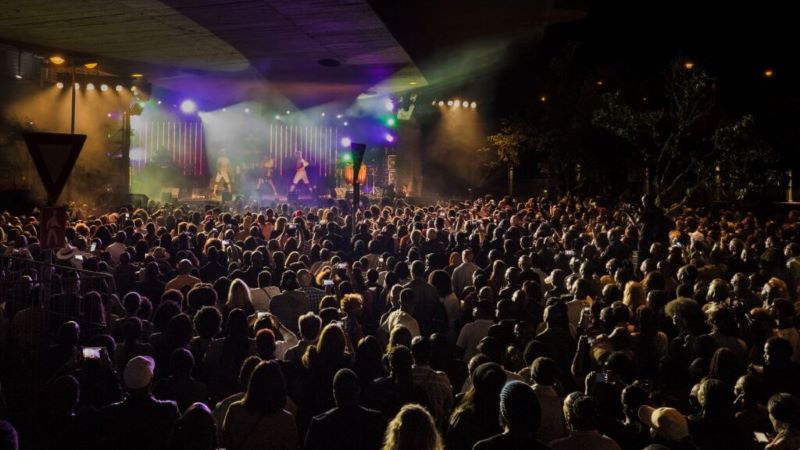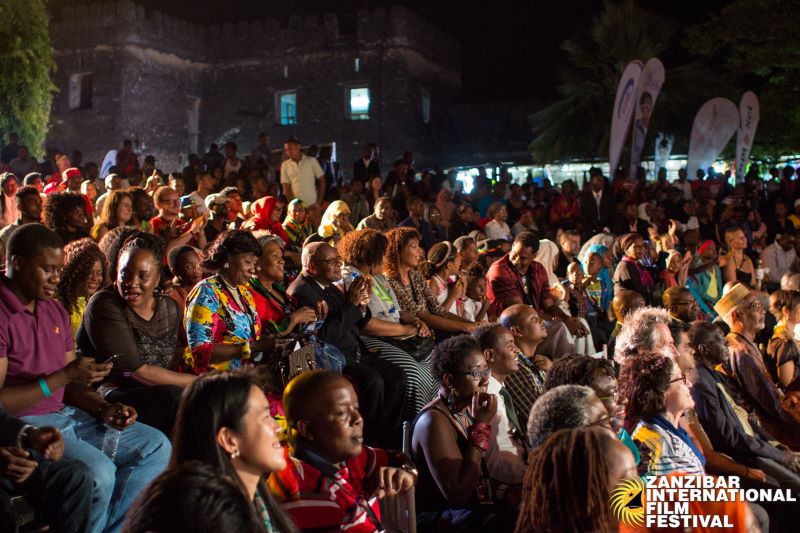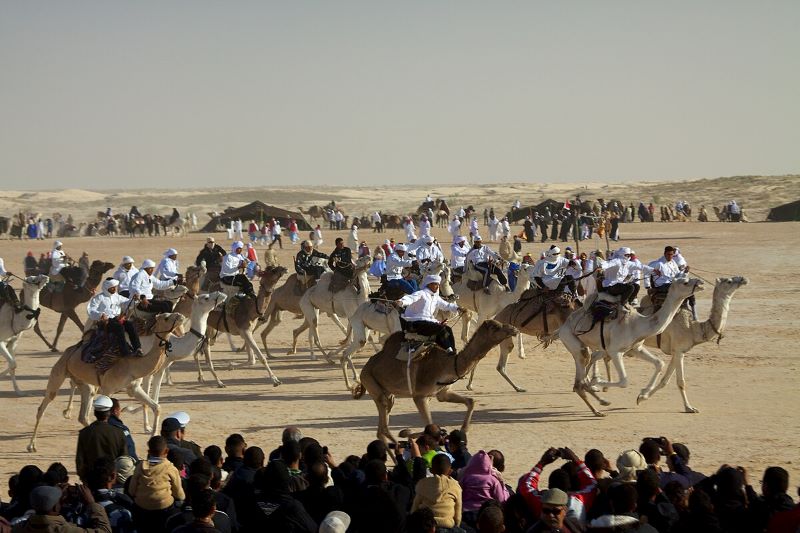Tunisian musicians at the Festival of the Sahara. Image Source: Vincenzo Fileccia, CC BY-SA 2.0, via Wikimedia Commons
The world as a global village has become synonymous with not just the spread of information technology and its impact on emerging and already established economies, it also finds relevance in the fostering of cross-cultural experience through cultural exports and its ability to entertain, challenge and correct misconceptions as well showcase the history and lifestyle of a people on the global stage.
In Africa, several cultural events have taken on a global dimension, drawing attention on the international stage and attracting visitors from all over the world to experience the best of Africa. With many leveraging the value of these festivals as an opportunity to tell the African story and become global ambassadors, the events have become an effective tool for showcasing the beauty and rich history of the continent. Let us take a look at three African festivals that have become a global sensation.
Cape Town International Jazz Festival

Image Source: Capetown Jazz Festival
The CTIJF as it is also referred to is one of Africa’s biggest annual gatherings where the world’s most talented and exceptional musicians meet to celebrate the beauty of Jazz music. Marking its maiden edition in 2000, the festival has spotlighted traditional African music makers as well as contemporary jazz artists.
Artists such as Miriam Makeba (also known as Mama Africa), Lauryn Hill, Hugh Masekela, Dave Koz, Angie Stone, Erykah Badu, the Gypsy Kings, and many others have featured during this festival.
The festival is also a hub for discovering new talents in the world of music as workshops and sessions are held by renowned musicians who take time to nurture new talent and help them harness their passion for music irrespective of the genre.
Beyond the confines of the music world, the festival also provides attendees with an opportunity to gain a deeper understanding of African history and culture. Through workshops, exhibitions, and panel discussions, visitors can better grasp an understanding of African heritage. The event has also remained a crucial contributor to boosting the country’s tourism sector.
Zanzibar International Film Festival

Image Source: Film Freeway
The ZIFF as it is also referred to is an annual event that showcases the best in filmmaking from across the diverse regions in Africa and abroad. Established in 1997, the festival is a platform that promotes the uniqueness of African culture through films of diverse genres. Also known as the festival of the Dhow countries, which are countries located in the African and Indian Ocean Basin such as East, West, North and Southern Africa, Arabia, Iraq, Iran, and Madagascar among others, the film festival is biggest in East Africa and attracts filmmakers from all across the globe.
Undoubtedly one of the biggest art and culture festivals in the continent, the competition gives out awards to the best filmmakers in several of these categories, Best Feature Film, Best Documentary, Emerson Award for the Best Zanzibar Film, Best Short Film or Best Animation, Best East African Film, The Sembene Ousmane Award for the Best Film for Development, Best Actor (East Africa), Best Actress (East Africa), Best Actor (Tanzania), Best Actress (Tanzania). (source: https://filmfreeway.com/ZanzibarInternationalFilmFestival).
The festival also offers guests an opportunity to experience workshops, discussion panels, international cinema, various musical concerts, and the very best of the beautiful land of Zanzibar as a tourist destination.
International Festival of the Sahara

Image Source: McKay Savage, CC BY 2.0, via Wikimedia Commons
Also known as the Festival International de Douz, the event is one of the recognized celebrations in Northern Africa. Every year since 1910, thousands of people gather to witness a four-day display of Berber and Bedouin history, culture, and tradition as various forms of camel and horse racing, and bike rallies. Prey hunting as well as dog racing, art exhibitions, poetry, music, and dance as well as other Arabic and Berber cultural activities at the renowned H’naiech stadium.
The event was originally seen as a Bedouin bridal event where families would gather seeking an opportunity to deepen and strengthen family ties through the marriages of their sons or daughters. Gradually the event was transformed into an annual celebration of desert culture on the Bedouin calendar.
The event usually occurs in December and is packed full of all forms of adventurous activities such as sandboarding, dune bashing and desert walks with approved guides so that visitors can enjoy and participate in an experience of a lifetime. Local artworks are also available, offering visitors the opportunity to purchase souvenirs that hold memories of the Sahara.

Okechukwu Nzeribe works with the Onitsha Chamber of Commerce, in Anambra State, Nigeria, and loves unveiling the richness of African cultures. okechukwu.onicima@gmail.com





